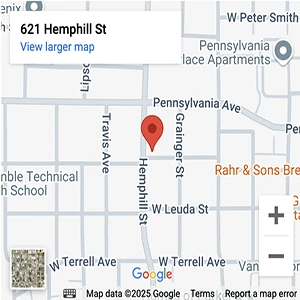
Moore & Associates are employment lawyers in Houston, Texas who assist clients with a range of complex employment law questions. The process of seeking a new job can be involved and challenging, especially in today’s competitive environment. Employees may need to undergo background checks and reference checks. They may need to sit for several interviews. What happens if a former employer gives you a bad reference and this leads to a lost job offer? What rights do you have? Can you sue an employer for giving you a bad reference in Houston, Texas?
The answer is that it depends. If your former employer’s bad reference is an honest assessment of your skills and is truthful, you may not have the right to sue. However, if a bad reference involves false statements or misrepresentations about you, you may have the right to pursue a lawsuit for defamation. Moore & Associates are Houston, Texas employment lawyers who can help you seek damages if a former employer’s poor reference has led to lost job opportunities. Contact us today to learn more.
The Truth About Most References
If you think you have lost a job opportunity because of a bad reference, the truth is that many human resources departments in today’s market tend to be very cautious about giving out bad references. In many cases, human resources will respond to a reference check with objective information about when you were hired, when you left the company, your rank, and possibly, your salary. However, if a savvy employer calls around and asks to speak to lower management or a colleague, this person may reveal information that either could be colored by personal animosity or anger, and this could lead to a poor reference. In most cases, individuals seeking jobs won’t be able to pursue a lawsuit for a bad reference, because either former employers won’t provide information beyond objective information, or because information shared is accurate and truthful. For example, a former employer providing a police report that shows you stole from the company isn’t a reference for which you’ll be able to pursue a lawsuit. In order to pursue a lawsuit for a bad reference, you’ll need to have proof that a former employer lied about you.
Suing for Defamation in Houston, Texas
The most common way that individuals can seek damages if they have lost a job due to a poor reference is by suing for defamation. In order to sue for defamation, certain criteria must be met. First, the statement that your former employer made must be untrue. You cannot sue for defamation if the statement your former employer made can be proven true. So, if you were always late, and your former employer says this to a new hiring manager, and can prove this statement, then you won’t be able to sue for defamation, because former employers have the right to make true statements about you, even if the statements are negative. So, the basis of a defamation lawsuit is that the statement made about you must be false. Furthermore, you cannot sue for a statement made when the statement involves another person’s opinion. It can be difficult to pursue a defamation claim just because a former employer tells another employer that they think you are difficult to work with.
In order to sue for defamation, you’ll need to prove that a false statement was made about you and that the person making the statement had reason to believe that the statement was false. Proving this can be challenging, but it is not impossible. Finally, in order to pursue a defamation lawsuit, you’d need to show the court that you suffered monetary damages as a result of false statements made about you. Losing a potential job offer could be seen as sufficient loss.
If you believe you are losing job opportunities because a former employer is providing hiring managers with bad references and false statements, you may have certain rights under the law. Moore & Associates are employment lawyers in Houston, Texas who work closely with individuals whose rights have been violated during the hiring and firing process. Contact us today to learn more.
Getting Good References
Good references are essential if you are trying to get hired at a new job. The best way to determine whether you’ll get a good reference is to reach out to former employers and let them know that hiring managers may be contacting them for references. Ask your former employers if they are willing to give you a good reference. It might not be a good idea to list a former employer if they cannot offer a good reference. If you know that a hiring manager will contact a former employer where you had a bad relationship or where you know negative information may be shared, you may want to talk to your hiring manager about the experience. Sometimes being proactive about truthful negative information that may be shared about you can tell a future employer a great deal about your character. Few of us get along with everyone. Few of us have been perfect at everything we’ve done. In today’s job market, how a job candidate learns from these failures can be seen as an asset. So, if you can let your future employer know what you learned from a bad experience, this can be helpful to your case.
However, if you are concerned that a former employer will share false negative information about you with a hiring manager, you may have rights under the law. First, you can tell hiring managers what is going on. Secondly, you may be entitled to pursue a lawsuit for defamation. Moore & Associates are employment lawyers in Houston, Texas who may be able to help you if you are facing a situation where bad reviews from a former employer are hurting your job prospects. Contact us today to learn more






